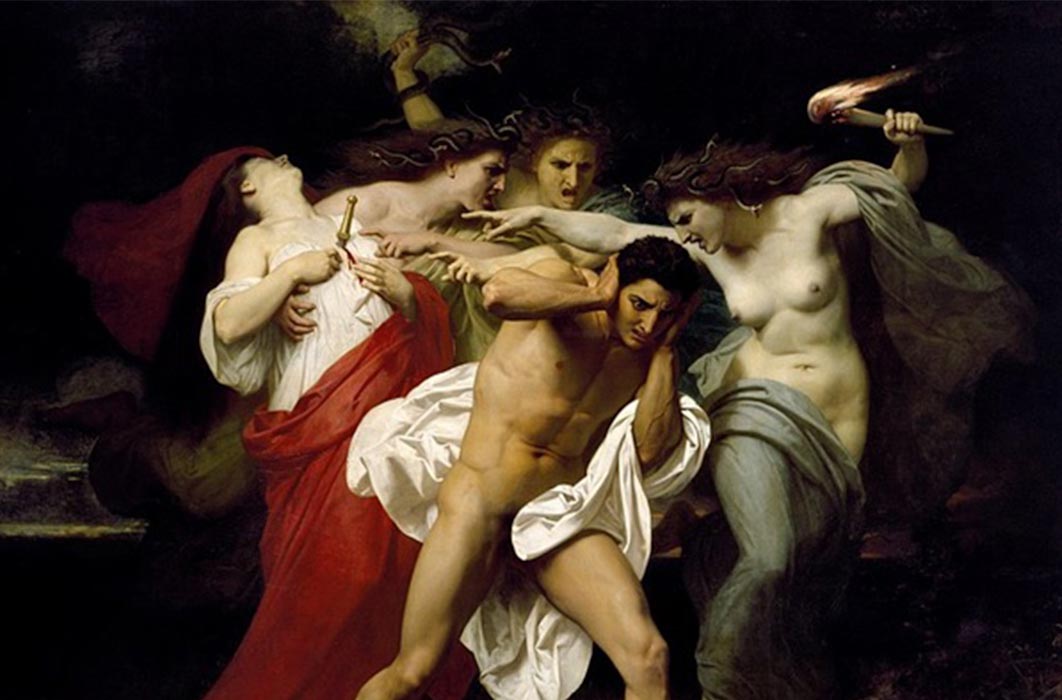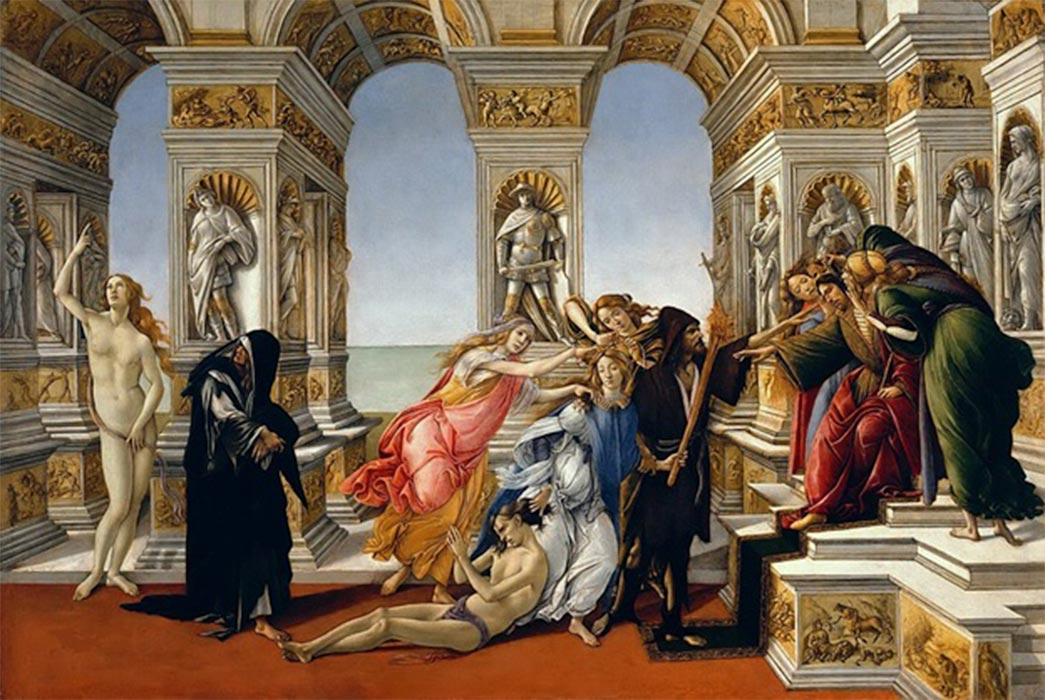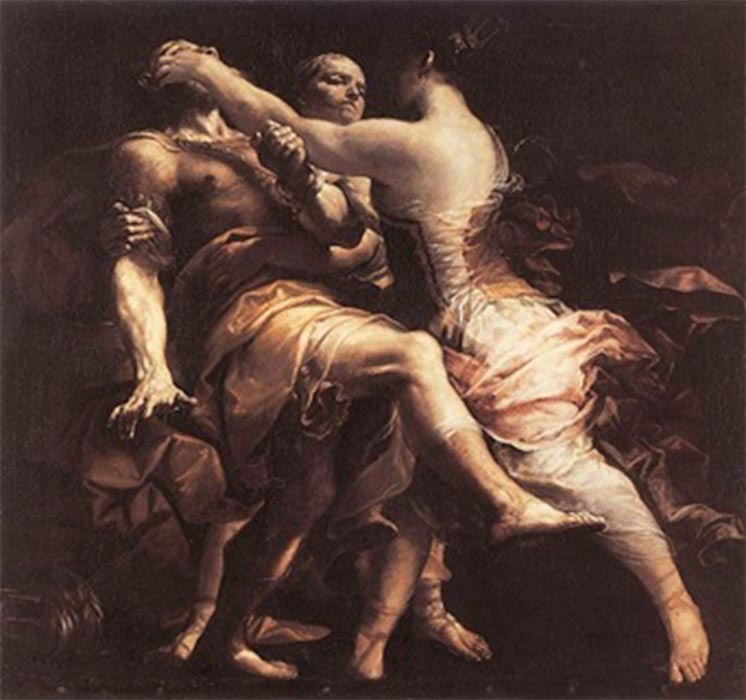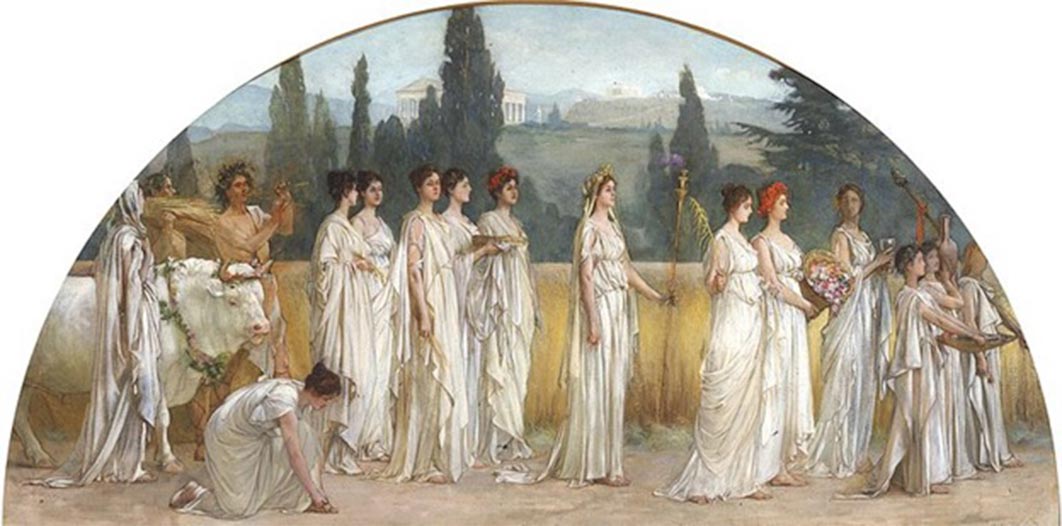
Aristophanes and Euripides: The Comedy and Tragedy of Fifth Century BC Greek Women
Euripides (circa 480 – 406 BC) was the last of the three great tragedians of Classical Greece - the other two being Aeschylus, the ‘Father of Tragedy’ who, among many others wrote Agamemnon (458 BC) and Seven Against Thebes (467 BC), and Sophocles, who is famous for such plays as Oedipus Rex (429 BC) and Antigone (442 BC). Euripides had a very different style than the other two great tragedians. Euripides’ plays show his questioning attitude towards both religious belief and the ancient myths and legends, which formed the traditional subject matter for Greek drama, whereas Aeschylus and Sophocles wrote about both topics with a lot more conviction. Therefore, even from this standpoint alone, Euripides’ dramas were considered to be very unusual in his time.

Greek artist Apelles’ ‘On Calumny ‘by Sandro Bocelli (1496) depicting Slander, Ignorance, Suspicion, Fraud and Conspiracy as women. (Public Domain)
Social Critic Attacked by Dogs and Women
Euripides was not only critical towards religions and ancient legends, he was also considered to be the biggest social critic of all the ancient Greek tragedians. Euripides reshaped the formal structure of traditional Greek tragedy, which was heavily focused on the adventures of heroes and demigods. Instead, he introduced strong female characters and intelligent slaves, as well as satirizing many of the heroes of Greek mythology. Instead of the larger than life characters, as drawn by Aeschylus and Sophocles, Euripides favored relatable protagonists. The protagonists in Euripides’ plays are mostly regular men and women with all the flaws, vulnerabilities and complications of ordinary human beings. He deployed these characters to express the doubts, problems and feelings of the audience of his time. Perhaps understandably, because of his questioning attitude of the status quo, Euripides gained a reputation as a controversial character himself. He also gained somewhat of an unfortunate reputation as a misogynist. Euripides has been accused of hating, denigrating and slandering women.
At the invitation of King Archelaus I of Macedon, Euripides left Athens in 408 BC and lived out the rest of his life in Macedonia. He is believed to have died there in the winter 407 or 406 BC, possibly due to an exposure to the harsh Macedonian winter. However, in keeping with his controversial reputation, an improbable variety of other explanations for his death, has him being torn apart by dogs or perhaps an even worse fate befell him, that he was torn apart by women who disapproved of what he had written about them.

Hecuba by Giuseppe Maria Crespi - Web Gallery of Art (18th century) (Public Domain)
Fake News: Enduring Criticism of Euripides
Euripides’ heroines are imperfect and complicated women. Among others, he wrote about Phaedra, wife of Theseus, who was in love with her own stepson; Auge, a girl who bore an illegitimate child in a temple and, of course, Medea, a mother who murdered her children, among others. Does this make Euripides a misogynist?
- Overwriting Euripides: Hidden Classical Texts Were Washed Over in Medieval Times
- The Controversial Plays of Aristophanes: How the Ancient Greek Father of Comedy Created a Legacy
- The Abandoned Heroine Archetype in Greek and Roman Myth
Many of the conceptions about Euripides and his motivations for writing about such imperfect women were collected by Satyrus the Peripatetic, a third century philosopher and biographer. He wrote biographies of many eminent people which included kings, statesmen, philosophers, orators and poets such as Euripides himself. As he lived around 200 years after Euripides, Satyrus acquired most of his sources from the works of the comedic poet Aristophanes, a contemporary of Euripides. Like Euripides, Aristophanes produced many plays that dealt with the political and social issues of his time. The butt of Aristophanes’ jokes included many public figures such as Cleon, an Athenian general in the Peloponnesian War; the popular philosopher Socrates, and Euripides himself.





